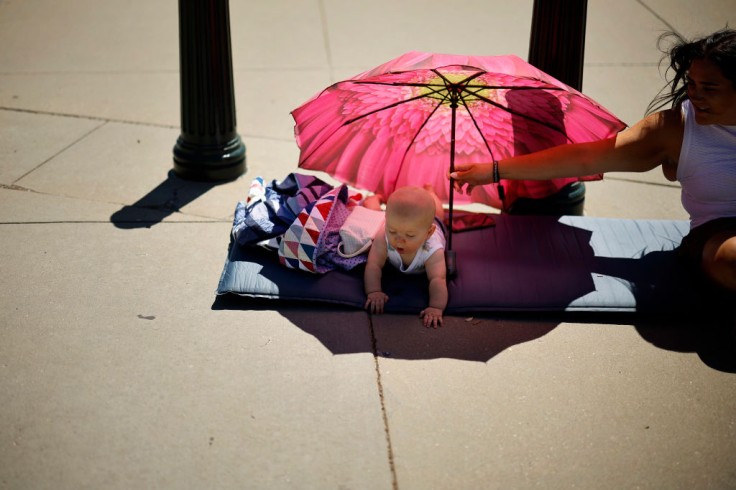
Severe heat waves present serious health risks for all individualities, with babies being especially susceptible. It's essential for parents to comprehend the pitfalls of extreme heat for babies and take necessary preventives as global temperatures increase.
Babies are more vulnerable to extreme heat waves because of numerous physiological and behavioral factors. Children's bodies are less effective at controlling temperature than grown-ups, leading to an advanced output of body heat in comparison to their size. Also, babies depend on grown-ups for staying hydrated and keeping cool, which puts them at threat for heat-related complications.
Infants Are at Risk for Extreme Hot Waves
Underdeveloped Thermoregulation
Youthful children's bodies are still growing, and they aren't as adept as aged adults in controlling their body temperature. Their limited sweating capability can beget them to easily overheat in hot conditions due to dysfunctional sweat glands.
Advanced Body Surface Area to Weight Ratio
Babies have a lesser rate of body surface area to weight, leading them to absorb heat rapidly from the terrain. This heightened heat immersion may affect in a quick increase in body temperature, making them susceptible to heat-related ails like heat burnout and heat stroke.
Dependence on Caregivers
Babies depend fully on caregivers for staying doused and regulating body temperature. Parents must be vigilant and proactive in making sure their babies stay doused and cool during heat surges because babies can not express when they're uncomfortable or in need of fluids.
Essential Safety Tips for Parents
There are multiple conduct parents can take to shield their babies from the pitfalls of severe heat waves. The following are important safety guidelines to remember:
Stay Doused
Make sure your baby stays hydrated by furnishing regular breastfeeding or bottle-feeding. For older babies, offer small amounts of water along with their usual meals. observer hydration degrees by watching the amount of wet diapers.
Dress Suitably
Put your baby in comfortable, airy clothes that are made of breathable outfit like cotton. Don't wear too much apparel and wear a broad- brimmed hat to shield your baby's head and face from the sun.
Keep Cool Outdoors
During times of extreme heat, try to keep your baby inside as frequently as you can, ideally in a room with air conditioning. In the absence of air conditioning, use fans to produce a circulating air inflow and maintain a cool room temperature. Make a chill spot with wet towelettes or a stimulating bath.
Limit Outdoor Exercise
Try not to bring your baby outside during the peak hours of the day, generally from 10a.m. to 4p.m. However, try to stay in the shade and minimize the time spent doing out-of-door exercise, If you need to leave the house.
Monitor for Signs of Heat-Related Ails
Keep an eye out for symptoms of heat- related complications, like too much sweating, crankiness, fatigue, and redskin. However, swiftly cool your baby and get medical help if required, If you see any signs.
Use Sunscreen Sparingly
For babies over six months, use a little baby-friendly sunscreen on any exposed skin. When dealing with youngish babies, dress them in protective apparel and insure they stay out of direct sun.
High temperatures can put babies in peril, but parents can keep their babies safe from heat-related sickness with the right way and careful monitoring.
Parents can insure the safety and comfort of their babies in hot weather by knowing their vulnerabilities and following important safety guidelines. Keep in mind that taking visionary measures can greatly impact the health and well- being of your baby during severe heat surges.
Related Article: 10 Essential Tips to Prevent Heat Stroke in Children, Teens in 2024